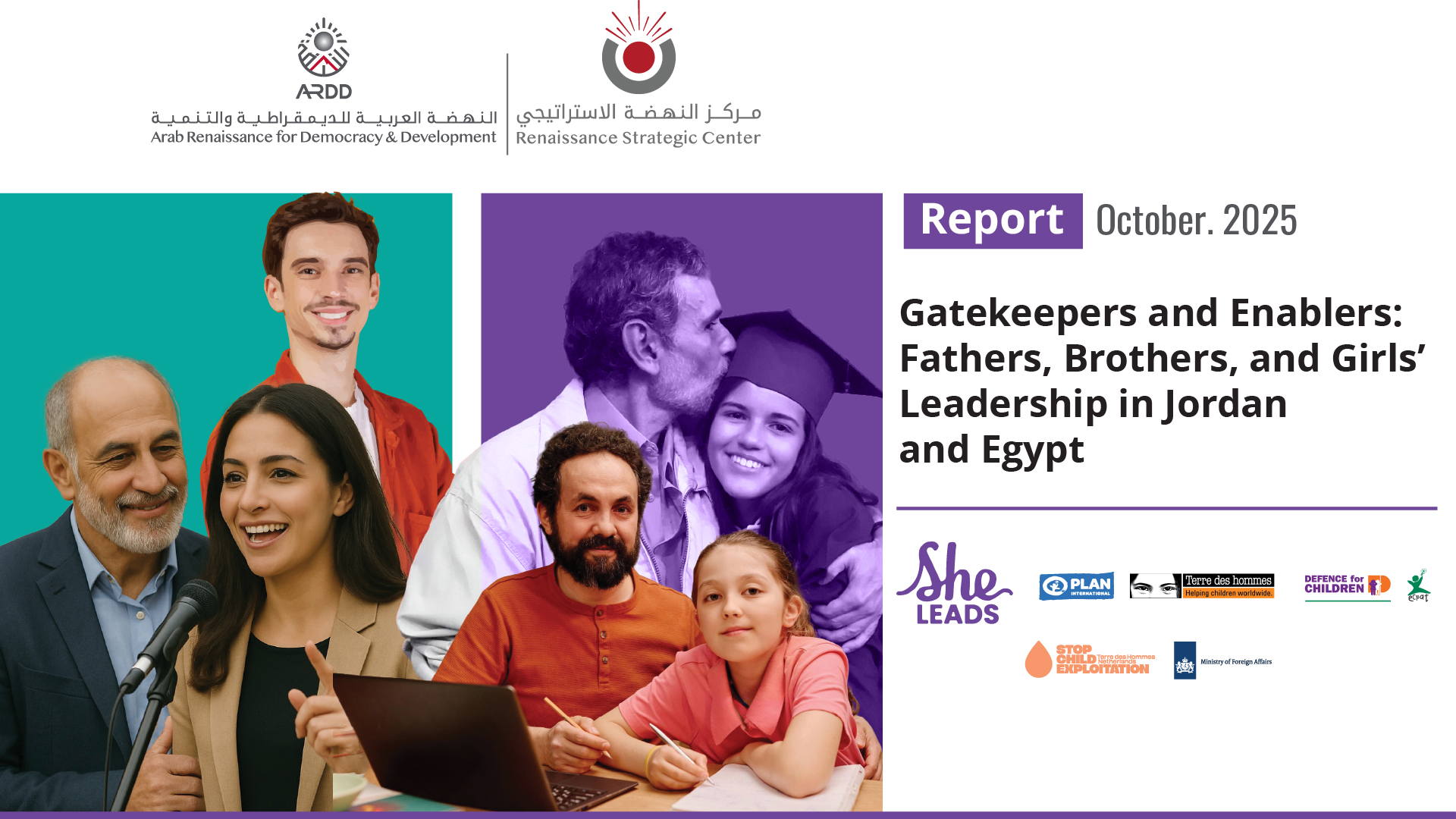In both Jordan and Egypt, fathers and brothers play a pivotal role in fostering girls’ and young women’s leadership in the Arab world. According to the survey, 99% of respondents – including fathers, brothers, and girls from Jordan and Egypt – recognized the father’s role as important in supporting girls and young women to assume leadership positions within their families and communities, with 91% describing it as very important. Similarly, 83% of participants identified the role of brothers as either very important (56%) or important (28%), while a small proportion remained neutral (13%) or considered it not important (2%). Fathers, in particular, are seen as key guiding figures in their daughters’ professional development, providing both financial support and mentorship, especially in education and career advancement. In the in-depth individual interviews, all fathers (5/5) emphasized that they encourage their daughters to take on leadership roles within the family, with the goal of becoming self-reliant and financially independent. A main sphere of support provided by male family members is the investment in girls’ educational journeys. As confirmed by all girls during individual interviews (18), their fathers cover university fees and actively support additional educational opportunities, such as trainings and workshops, contributing to build girls’ independence and self-confidence.
Nonetheless, while male figures provide considerable support, challenges remain for their engagement in women’s leadership. Social and cultural norms continue to shape men’s perceptions of women’s roles and capacities. For instance, only a minority of fathers expressed support for their daughters’ freedom to travel for study or work reasons, citing among the concerns potential social judgment from community members. Moreover, interviews with brothers reflected social stereotypes as they reiterated the belief that, to assume leadership positions, women should “set aside their emotions,” or work in socially accepted fields, such as education.
As societal norms gradually evolve, fathers and brothers often find themselves mediating between traditional expectations and emerging realities. By involving their daughters in decision-making processes and supporting their economic independence, fathers and brothers can play a pivotal role as intermediaries, bridging traditional social norms with more equitable divisions of roles within the family and society. According to the research, in contexts where social and cultural norms continue to restrict women’s opportunities, particularly in rural areas, fathers often serve as key allies, supporting young women in pursuing educational and leadership opportunities.



